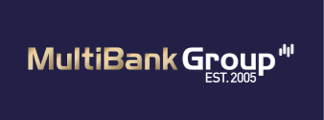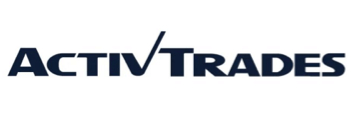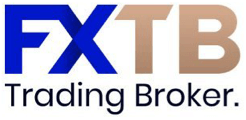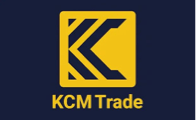EasyMarkets is a long-standing multi-asset CFD broker known for its emphasis on transparency, fixed-spread pricing, and risk-management tools tailored to everyday traders. For audiences across Asia, the broker’s value lies in its straightforward onboarding, multilingual support, and platform flexibility (WebTrader, MT4, MT5, and TradingView), all wrapped in a compliance-first approach under multiple global regulators. Rather than chasing complexity, EasyMarkets focuses on predictability—clear costs, intuitive interfaces, and protective features such as deal cancellation—making it a practical environment for learners and disciplined strategists operating during Asian market hours.

Between 60 to 80% of retail CFD accounts lose money.
| Regulators | ASIC CySEC FSA FSC FSCA |
|---|---|
| Minimum Deposit | $25 |
| Leverage | Between 1:10 and 1:2000 | Payment Methods | Bank Transfer Visa Mastercard Skrill Neteller FasaPay SticPay WebMoney Cryptocurrencies |
EasyMarkets has been part of the online trading world since the early 2000s, a time when few brokers offered retail access to derivatives. Its mission has remained constant: making trading accessible, transparent, and controlled. For traders in Asia, where digital financial inclusion continues to expand, this approach resonates. The broker presents itself with a strong commitment to clear pricing, a user-friendly platform environment, and an educational philosophy centered on informed risk-taking rather than speculation.
Upon entering the EasyMarkets ecosystem, the design philosophy is instantly noticeable. The website, trading app, and proprietary web platform are simple yet refined, without unnecessary clutter or complexity. Account registration feels modern, with verification steps streamlined for compliance while maintaining accessibility. The broker highlights its longevity, low entry barrier, and focus on consistency — three attributes that hold particular importance for Asian traders transitioning from savings to investment behavior.
One of the first features that stands out is the broker’s emphasis on risk management tools. Functions such as “Deal Cancellation” and “Freeze Rate” are not gimmicks; they are designed for users seeking structured exposure with limited downside. In Asia, where many retail traders operate within family-based financial cultures that prioritize stability, these built-in safeguards can bridge the psychological gap between investing and speculation.
Overall, the first impression EasyMarkets gives is that of a company blending old-school reliability with a modern digital presence. Its combination of intuitive interface, transparent cost structure, and regulation in multiple regions offers a strong sense of stability. Still, like any broker, the depth of value depends on execution quality and long-term consistency — aspects explored further below.
Regulation
When evaluating a broker’s trustworthiness, regulation remains the foundation. EasyMarkets operates under a group structure with multiple entities regulated by recognized authorities. These include:
- Australian Securities and Investments Commission (ASIC) – Australia
- Cyprus Securities and Exchange Commission (CySEC) – European Union
- Financial Services Authority (FSA) – Seychelles
- Financial Services Commission (FSC) – Mauritius
- Financial Sector Conduct Authority (FSCA) – South Africa
Each of these regulators enforces capital adequacy, client-fund segregation, and dispute resolution standards appropriate to its jurisdiction. For Asian traders, it’s essential to note that while EasyMarkets does not currently hold a Monetary Authority of Singapore (MAS) license, its multi-jurisdictional framework allows coverage under ASIC or CySEC oversight, depending on residence and onboarding entity.
The broker’s transparency policy is evident in its documentation and public disclosures. EasyMarkets provides clients with real information about its compensation structure, liquidity arrangements, and data security measures. The firm’s compliance with European MiFID II standards under CySEC further adds a protective layer by mandating clear best-execution protocols and risk disclosures. This transparency is particularly valuable in regions where regulatory oversight varies and financial literacy remains in development.
Disclaimer: Although EasyMarkets is a regulated broker, Asian users should confirm which entity will handle their accounts. Certain jurisdictions may not fall under ASIC or CySEC protection, which could influence available leverage, dispute procedures, and fund protections. Verifying your account’s legal entity is a best practice before funding any broker.
Opening an Account — Our Experience
Account opening with EasyMarkets follows a predictable yet efficient pattern that blends compliance and accessibility. The registration form requests basic personal information, proof of identity, and address verification, all conducted through an encrypted onboarding portal. For Asian traders, especially in regions where digital KYC infrastructure is robust (like Singapore, Malaysia, or Hong Kong), the process feels quick and secure.
Deposits and withdrawals can be made through bank transfers, credit/debit cards, and regionally recognized e-wallets. EasyMarkets also supports localized payment solutions for some Asian markets, though coverage varies depending on the entity. What’s refreshing is the broker’s clarity about processing times and fees: deposits are usually instant, while withdrawals are executed within 24 hours, with no hidden costs imposed by the broker itself. Any potential delays often stem from intermediary banking systems.
The overall user experience during account creation is smooth. The broker’s interface guides traders through each verification step, and live chat assistance is available in multiple languages. This multilingual support, including English, Mandarin, and other Asian languages, reinforces the firm’s effort to be globally inclusive while addressing regional nuances. Security measures such as two-factor authentication (2FA) are present, though not mandatory by default — something advanced users may wish to enable for extra protection.
In summary, the account opening journey feels modern, intuitive, and designed for inclusivity. It balances regulatory obligations with user convenience, an aspect that can often make or break a trader’s first impression. For beginners, EasyMarkets’ transparent communication reduces onboarding anxiety. For professionals, the quick setup means they can evaluate spreads, execution, and platform functionality without unnecessary friction.
Account Types
EasyMarkets structures its accounts to appeal to diverse trading profiles rather than overwhelming users with unnecessary options. The available accounts differ mainly in pricing model, platform access, and trading conditions. Below is a comparative overview of the main types:
| Account Type | Minimum Deposit | Spreads | Commission | Leverage | Platforms |
|---|---|---|---|---|---|
| EasyMarkets Account | $25 | From 1.0 pips | No commission | Up to 1:2000 | WebTrader, EasyMarkets App |
| MT4 Account | $25 | From 0.9 pips | No commission | Up to 1:2000 | MetaTrader 4 |
| MT5 Account | $25 | From 0.8 pips | No commission | Up to 1:2000 | MetaTrader 5 |
| TradingView Account | $25 | From 0.8 pips | No commission | Up to 1:2000 | TradingView |
What’s notable is that EasyMarkets keeps its structure straightforward — no complicated tiers or misleading “VIP-only” promises. All accounts have access to the same essential protection mechanisms, educational tools, and support quality. The difference lies mainly in trading platform preference and spread model. For traders in Asia, this approach makes decision-making easier, especially for those new to derivatives. High leverage availability, while attractive, must be approached responsibly, as leverage magnifies both potential profit and loss.
Platforms
EasyMarkets’ multi-platform ecosystem accommodates every kind of trader. Its proprietary WebTrader platform stands out for simplicity and accessibility, ideal for users who prefer to avoid complex configurations. It includes all basic charting tools, risk-control functions, and features like fixed spreads and deal cancellation. The EasyMarkets App replicates this experience on mobile devices, ensuring continuity for users who trade on the move — particularly important in Asia, where mobile trading adoption is exceptionally high.
For experienced users, EasyMarkets supports MetaTrader 4 and MetaTrader 5, offering deeper analytical tools, customizable indicators, and compatibility with Expert Advisors (EAs). Execution on MetaTrader remains solid, backed by a no-dealing-desk model that minimizes latency and slippage. Traders familiar with algorithmic trading will find the environment conducive to system-based execution. Furthermore, MT5 access expands asset coverage and supports netting or hedging modes as per the trader’s choice.
TradingView integration is one of the broker’s most recent additions. This feature appeals to technical analysts who prefer a visual, collaborative charting experience. It enables direct trade placement from charts, extensive indicator libraries, and access to TradingView’s global community. For Asian traders used to social-driven financial ecosystems, this integration bridges traditional brokerage with modern digital behavior.
Across all platforms, EasyMarkets focuses on delivering transparency and consistency rather than experimental technology. Orders execute efficiently, data feeds are stable, and the platforms function smoothly across devices. While customization depth may not rival institutional-grade systems, for most retail traders, the available ecosystem is more than adequate.
Assets
EasyMarkets structures its product offering around CFDs covering major and emerging markets — forex, indices, commodities, cryptocurrencies, and shares. Instead of competing on raw quantity, the broker emphasizes instrument diversity across uncorrelated asset classes. For Asian traders, this focus encourages balanced exposure between regional and global instruments, supporting both short-term trading and long-term portfolio hedging.
Available Assets
Below you can see which assets are available for trading with easyMarkets:
| Asset | Availability |
|---|---|
| Currencies | 29 |
| Real Stocks | ✗ |
| Stock CFDs | ✓ |
| Commodities | ✓ |
| Indices | ✓ |
| Real ETFs | ✗ |
| ETFs CFDs | ✗ |
| Futures | ✗ |
| Options | ✗ |
| Bonds | ✗ |
| Cryptocurrency CFDs | ✓ |
| Real Cryptocurrencies | ✗ |
*Availability of certain assets may vary based on account type, platform, or region.
In practice, this means traders can shift between asset classes depending on market cycles. For example, during regional currency volatility, FX pairs like USD/JPY or AUD/USD often dominate; during global uncertainty, metals or indices can serve as alternative opportunities. This multi-asset flexibility is crucial for traders seeking resilience across sessions, as Asia’s markets operate in unique liquidity windows that precede Europe and the U.S.
Additionally, the broker’s education and research sections often emphasize understanding inter-market relationships rather than over-trading. For instance, how gold correlates with Asian equities or how crude oil impacts AUD or CAD pairs. By guiding users toward macro awareness, EasyMarkets supports skill development alongside trading activity — an approach more in line with sustainable trader growth than speculative short-termism.
Ultimately, EasyMarkets offers a cohesive asset experience — not excessively broad, but logically structured to suit multi-strategy traders who value correlation awareness and capital efficiency.
Spreads
EasyMarkets operates primarily on a fixed spread model. While variable-spread brokers may advertise slightly tighter pricing during peak hours, fixed spreads ensure predictability, which is often undervalued. For Asian traders dealing with overlapping sessions or low-liquidity windows, the ability to anticipate exact transaction costs is critical for risk control and consistent strategy execution.
Spreads Offered
Below a visual representation of easyMarkets's spreads across several currency pairs:
*Spreads are variable and may change based on market conditions, account types and trading volumes.
Typical spreads start from around 0.8 to 1.0 pips on major pairs, depending on platform choice. The absence of commissions simplifies cost calculation: what you see is what you pay. While raw-spread plus commission models can sometimes be marginally cheaper for high-frequency traders, the stability of fixed pricing benefits discretionary traders and beginners who prioritize simplicity.
Execution quality complements the spread offering. Orders are processed without requotes or artificial delays, with data transparency visible through the trade confirmation interface. EasyMarkets also publicly documents how fixed spreads apply even during major news events, which is rare among brokers. This consistency appeals particularly to users in fast-moving markets like Japan or Hong Kong, where sudden price spikes are common during overlapping global sessions.
In conclusion, EasyMarkets’ fixed-spread model is both its identity and strength. It represents a deliberate choice to trade a bit of flexibility for clarity, aligning well with the educational and protective tone the brand has maintained since inception.
Other Trading Costs
Beyond spreads, EasyMarkets maintains a transparent cost structure with minimal hidden fees. There are no deposit or withdrawal charges from the broker’s side, though intermediary banks or payment providers may apply their own processing fees. Inactivity fees apply after extended dormancy, a standard practice intended to maintain system efficiency rather than penalize traders.
Overnight financing (swap) charges are applied when positions are held past the trading day’s end. These rates vary by instrument and direction, reflecting interbank differentials. For Muslim clients or those observing Sharia principles, EasyMarkets offers swap-free account options. These accounts replace interest with fixed administrative adjustments, maintaining religious compliance while preserving fairness.
Currency conversion costs are another factor worth noting. Accounts denominated in one currency but trading instruments in another will incur minor conversion adjustments. EasyMarkets displays such costs transparently in account statements, enabling traders to quantify impact accurately.
Overall, the absence of non-trading penalties, platform fees, or maintenance costs reinforces the broker’s transparency. This simplicity helps Asian traders — particularly newcomers — focus on strategy rather than expense management.
Trading Conditions
Trading conditions at EasyMarkets are built around accessibility and control. Leverage levels vary by jurisdiction, reaching up to 1:2000 in some entities, though lower ratios may apply in stricter regulatory regions. The availability of such leverage appeals to high-frequency and small-capital traders in Asia, where smaller deposit bases are common. However, leverage remains a double-edged sword, magnifying both potential gains and losses. EasyMarkets provides educational resources to ensure users understand margin dynamics before using maximum exposure.
Order execution operates on a no-dealing-desk (NDD) basis, meaning prices reflect direct market data rather than broker-side manipulation. This setup supports stable pricing and minimal latency — particularly relevant for traders using automated systems on MT4 or MT5. The broker’s servers are optimized for uptime, ensuring uninterrupted connectivity across regional time zones.
Risk management features further define EasyMarkets’ trading environment. The “Freeze Rate” function allows traders to lock in a displayed price for a few seconds before executing, which can prevent slippage during volatile conditions. Meanwhile, “Deal Cancellation” offers a brief window to reverse losing trades for a small fee — an innovative mechanism unique to the brand. These features reflect a protective ethos tailored for users still refining their execution discipline.
In essence, EasyMarkets structures its trading environment around predictability, transparency, and user empowerment. For Asian traders accustomed to variable market infrastructure quality, these attributes deliver peace of mind and operational consistency.
Is EasyMarkets a Good Option for Asian Traders?
EasyMarkets’ value proposition for Asian traders lies in accessibility and reliability rather than speculative opportunity. Its broad regulatory coverage, transparent pricing, and multilingual support infrastructure align well with the region’s evolving retail-investor landscape. While the broker does not hold a MAS license in Singapore, its ASIC and CySEC oversight provide internationally recognized protection standards.
The broker’s emphasis on education, responsible leverage, and fixed spreads make it an attractive gateway for traders seeking disciplined exposure to global markets. Its mobile-first philosophy also aligns with Asia’s dominant smartphone usage trend, ensuring platform continuity across devices. Payment flexibility and local-language customer service contribute to its growing relevance in emerging Asian markets like Indonesia, Vietnam, and Thailand.
Disclaimer: Availability of certain features, leverage ratios, and platform options may differ depending on the user’s country of residence and the entity through which the account is opened. Traders in restricted jurisdictions should verify eligibility before registration.
Overall, while EasyMarkets may not cater to high-frequency institutional traders, it excels at delivering a balanced, education-focused trading experience for individuals across Asia who value structure and transparency.
Our Verdict
EasyMarkets stands as one of the more enduring brokers in the retail trading sector, having built its reputation on education, stability, and transparency. Its platform ecosystem prioritizes clarity over complexity, allowing traders to understand costs, risks, and functionality from the start. This is a refreshing contrast to brokers whose marketing obscures real conditions behind technical jargon.
The broker’s global regulatory framework, while lacking Singapore-specific authorization, is still strong. ASIC and CySEC oversight bring internationally recognized standards, while FSCA and FSA coverage ensure flexibility for clients in different regions. However, traders should always confirm their account’s governing entity, as local investor protections vary.
EasyMarkets’ focus on user control — through fixed spreads, deal cancellation, and educational content — positions it as a stable and trustworthy choice for developing markets in Asia. It may not have the tightest raw spreads or institutional execution depth, but for most retail traders, the combination of cost clarity and safety provides tangible long-term value.
In conclusion, EasyMarkets represents a pragmatic choice for Asian traders seeking transparency and reliability. Its philosophy aligns with sustainable trading rather than speculation, making it an excellent entry point for those prioritizing learning and discipline.
Frequently Asked Questions
Is EasyMarkets regulated?
Yes. EasyMarkets operates under ASIC, CySEC, FSA, FSC, and FSCA regulation, ensuring strong client protection and transparent practices. However, it does not currently hold a MAS license for Singapore clients.
What is the minimum deposit at EasyMarkets?
The minimum deposit is $25 across most accounts, making it accessible for traders with smaller starting capital.
Does EasyMarkets offer MetaTrader 5?
Yes. Traders can choose between WebTrader, MT4, MT5, and TradingView, depending on their preferences and analytical needs.
Are there any hidden fees?
No. EasyMarkets maintains a transparent fee structure with no hidden commissions, though standard swap and conversion fees may apply.
Can I use EasyMarkets from Singapore?
Yes, but accounts are opened under non-MAS entities. Traders should confirm which regulatory jurisdiction applies to their account before funding.
Is EasyMarkets good for beginners?
Yes. The broker’s focus on fixed spreads, risk management tools, and accessible education makes it well-suited for new traders seeking structure and clarity.
Note: Any opinions expressed in this article are not to be considered investment advice and are solely those of the authors. Singapore Forex Club is not responsible for any financial decisions based on this article's contents. Readers may use this data for information and educational purposes only.






































































